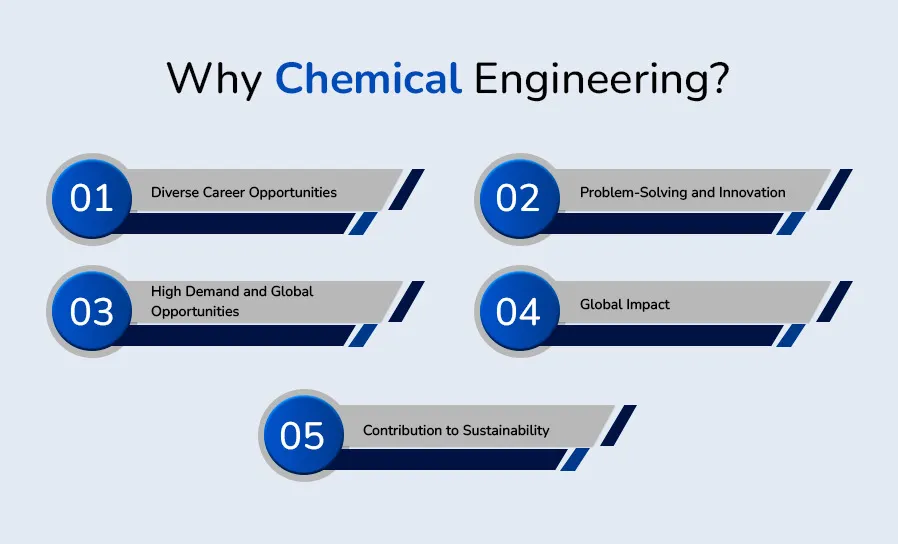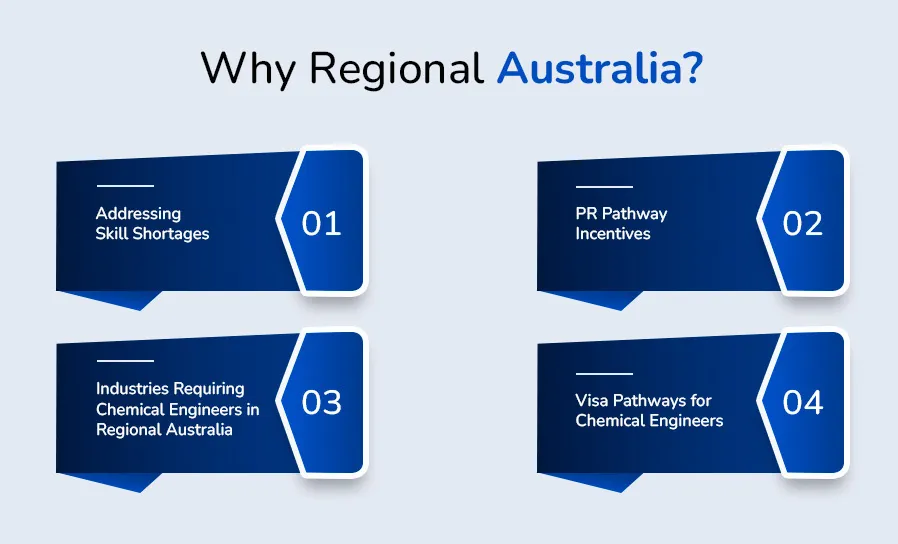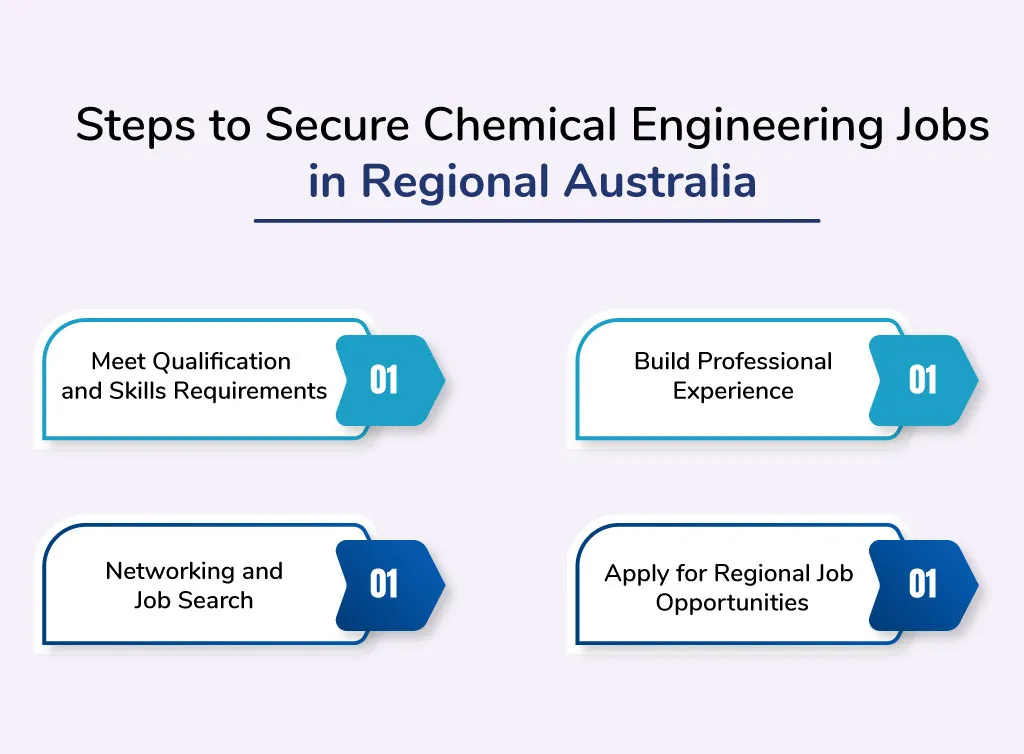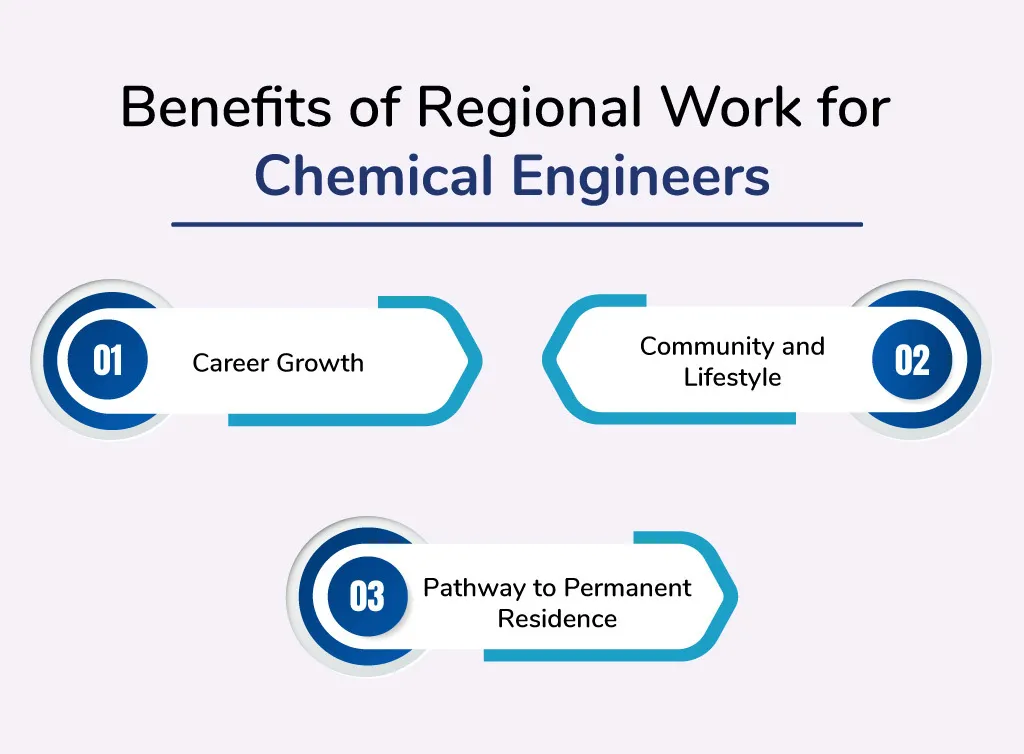
Australia’s regional areas offer thriving opportunities for chemical engineers. These regions not only provide professional growth but also serve as pathways to permanent residency (PR).
The Australian government actively promotes migration to regional areas to address skills shortages, making it an attractive option for skilled professionals like chemical engineers.
This blog explores the immense career potential for chemical engineers in regional Australia and how it can pave the way for permanent residency.
Why Chemical Engineering?

Chemical engineering is a versatile and impactful discipline that bridges the gap between science and industry. It involves applying chemistry, physics, biology, and mathematics to solve real-world problems, optimise processes, and create innovative solutions for various industries.
Here’s why chemical engineering is a rewarding and essential career choice:
1. Diverse Career Opportunities
Chemical engineering offers a wide range of career paths across multiple industries, including:
- Energy
Designing efficient oil refining, gas processing, and renewable energy production systems.
- Pharmaceuticals
Developing drug manufacturing processes and ensuring quality control.
- Environmental Engineering
Addressing issues like pollution control, waste management, and water treatment.
- Food and Beverage
Enhancing food processing technologies and ensuring safety standards.
- Materials Science
Innovating new materials such as polymers, nanomaterials, and composites.
2. Problem-Solving and Innovation
Chemical engineers are at the forefront of innovation, solving complex problems to improve processes and create sustainable solutions. It helps to:
- Optimise industrial operations for efficiency and cost-effectiveness.
- Develop eco-friendly processes and products to combat climate change.
- Innovate in fields like bioengineering, renewable energy, and advanced manufacturing.
3. High Demand and Global Opportunities
Chemical engineers are in high demand worldwide due to their expertise in key industries. Their skills are critical for:
- Developing renewable energy technologies.
- Meeting global challenges like water scarcity and sustainable agriculture.
- Supporting industrial growth in both developed and developing economies.
4. Global Impact
Chemical engineers contribute significantly to solving global challenges, such as:
- Providing clean drinking water to underserved populations.
- Creating affordable and accessible medications.
- Supporting the transition to renewable energy.
5. Contribution to Sustainability
Chemical engineers play a pivotal role in developing sustainable practices that reduce environmental impact. This includes:
- Designing energy-efficient processes.
- Innovating in waste reduction and recycling technologies.
- Advancing clean energy solutions, such as hydrogen production and carbon capture.
Why Regional Australia?

1) Addressing Skill Shortages
Regional Australia is home to industries that are heavily reliant on chemical engineering expertise. From mining and agriculture to energy production and environmental management, regional areas require highly skilled professionals to meet local demands.
2) PR Pathway Incentives
The Australian government has introduced visa programmes and point-based incentives to encourage skilled workers to migrate to regional areas. By choosing a regional location, chemical engineers can access:
- Regional sponsorships under Subclass 491 or Subclass 191.
- Additional PR points for regional work or residence.
- State or territory nomination advantages.
3) Industries Requiring Chemical Engineers in Regional Australia
a) Mining and Resources Sector
Australia is one of the largest exporters of minerals like iron ore, coal, and gold. Regional areas such as Western Australia and Queensland host major mining operations that rely on chemical engineers for process optimisation and resource management.
b) Agriculture and Food Processing
Chemical engineers play a crucial role in developing sustainable agriculture practices. They also contribute to food processing industries by designing systems that enhance production efficiency and product quality.
c) Renewable Energy Projects
Regions like South Australia and Tasmania are investing heavily in renewable energy projects. Chemical engineers are key players in developing biofuels, hydrogen production, and other sustainable energy solutions.
d) Water and Waste Management
Regional towns and industries often face challenges with water scarcity and waste management. Chemical engineers provide solutions for water treatment, desalination, and pollution control, ensuring environmental sustainability.
4) Visa Pathways for Chemical Engineers
a) Skilled Work Regional (Provisional) Visa (Subclass 491)
This visa allows skilled workers to live and work in regional areas for up to five years. Key benefits include:
- 15 additional PR points for regional residence.
- Access to pathways leading to Subclass 191 Permanent Residency.
Learn more: Skilled Recognition Graduate Visa Subclass 476 for Australia. ✈️🧑✈️
b) Employer Nomination Scheme (Subclass 186)
If employed by a regional business, chemical engineers can qualify for PR under this visa after meeting work experience requirements.
c) Skilled Nominated Visa (Subclass 190)
State or territory nomination can accelerate the PR process. Regional states often have priority lists that include chemical engineers due to local shortages.
Steps to Secure Chemical Engineering Jobs in Regional Australia

1. Meet Qualification and Skills Requirements
- Obtain a recognised degree in chemical engineering.
- Demonstrate skill alignment with ANZSCO Code 233111 for chemical engineers.
- Pass the Engineers Australia skills assessment, a prerequisite for migration.
2. Build Professional Experience
Having relevant work experience strengthens your resume and increases employability in regional industries.
3. Networking and Job Search
- Leverage platforms like LinkedIn and Seek to connect with regional employers.
- Join professional organisations such as Engineers Australia for networking opportunities.
4. Apply for Regional Job Opportunities
Focus on industries prevalent in regional areas, such as mining, energy, and food production.
Benefits of Regional Work for Chemical Engineers

1) Career Growth
Regional industries often provide leadership roles and opportunities for innovation, offering faster career advancement compared to urban areas.
2) Community and Lifestyle
Living in regional Australia offers a balanced lifestyle, with lower living costs, less congestion, and a stronger sense of community.
3) Pathway to Permanent Residence
Working in regional areas not only enhances your PR points but also demonstrates your commitment to contributing to Australia’s economy and society.
Challenges and Solutions for Regional Migration

Challenge 1: Adapting to Regional Lifestyles
Solution: Engage with local communities and participate in cultural activities to ease the transition.
Challenge 2: Limited Job Availability in Specific Regions
Solution: Research high-demand industries and target regions that align with your expertise.
Challenge 3: Skills Recognition and Licences
Solution: Ensure your qualifications are accredited by Engineers Australia and meet regional employer requirements.
Future Prospects for Chemical Engineers in Regional Australia.

1) Green Energy Transition
Australia’s focus on renewable energy will drive demand for chemical engineers to innovate and implement sustainable practices.
2) Advanced Manufacturing
Regional areas are embracing advanced manufacturing technologies, requiring chemical engineering expertise for process design and optimisation.
3) Climate Resilience Projects
Chemical engineers will play a pivotal role in developing solutions to mitigate climate change impacts in regional industries.
Conclusion
Australia offers vast opportunities for chemical engineers to thrive professionally while benefiting from pathways to permanent residency. The demand for expertise across various industries ensures long-term career growth, making it a compelling choice for skilled professionals.
Moreover, the Australian government’s regional migration policies are designed to reward skilled professionals who choose to work and settle in less populated areas. This not only benefits individual migrants but also contributes to the development of regional economies.
Chemical engineers play a crucial role in addressing critical challenges such as sustainable resource management, pollution control, and renewable energy integration, making their expertise invaluable in these regions.
For chemical engineers, the journey to PR involves more than just professional benefits. It’s an opportunity to immerse oneself in vibrant regional communities, enjoy a higher quality of life, and make a lasting impact through their work.
From participating in cutting-edge projects to helping build Australia’s sustainable future, chemical engineers in regional areas have the chance to leave a meaningful legacy.
Whether you are a recent graduate or an experienced professional, exploring opportunities in regional Australia can be a transformative step. With the right guidance, determination, and preparation, you can carve a successful career while securing permanent residency.
Leap today and turn your expertise into a pathway for growth and a brighter future in regional Australia. By strategically planning your move and leveraging regional incentives, you can unlock both career success and a fulfilling lifestyle in Australia.
FAQs
1. Why should chemical engineers consider working in regional Australia?
Regional Australia offers numerous opportunities for chemical engineers due to skills shortages in key industries such as mining, agriculture, renewable energy, and water management.
Additionally, the Australian government provides incentives like extra PR points and specific visa pathways for skilled professionals working in regional areas.
2. What are the main industries hiring chemical engineers in regional Australia?
Key industries include:
- Mining and resources
- Agriculture and food processing
- Renewable energy projects
- Water and waste management
These sectors rely heavily on chemical engineers for process optimization, sustainability, and innovation.
3. How does working in regional Australia benefit my PR application?
Working in a regional area can provide up to 15 additional points towards your PR application. Furthermore, regional visa pathways like Subclass 491 and Subclass 191 prioritize skilled workers living and working in regional locations.
4. Which visa options are best for chemical engineers seeking PR in regional Australia?
The most relevant visa options include:
- Subclass 491 (Skilled Work Regional)
Offers provisional residence with a pathway to PR.
- Subclass 191
Provides permanent residency after meeting work and residence requirements under Subclass 491.
- Subclass 186 (Employer Nomination Scheme)
PR for skilled workers employed in regional areas.
- Subclass 190 (Skilled Nominated)
Offers PR through state or territory nomination.
5. What qualifications are required for chemical engineers to work in Australia?
You need a recognised degree in chemical engineering and a positive skills assessment from Engineers Australia. Meeting the ANZSCO Code 233111 standards is essential for migration and employment.
6. How do I apply for a job in regional Australia as a chemical engineer?
Follow these steps
- Update your resume to meet Australian standards.
- Research regional job markets and high-demand industries.
- Use job portals like Seek, Indeed, and LinkedIn to find openings.
- Network with local professionals and organisations like Engineers Australia.
7. Are there any challenges in working in regional areas, and how can I overcome them?
Common challenges include adapting to rural lifestyles, limited social networks, and fewer amenities compared to urban areas. You can overcome these by:
- Engaging with local communities.
- Researching the lifestyle and cultural aspects of your chosen region.
- Leveraging professional networks for support.
8. What is the salary range for chemical engineers in regional Australia?
Chemical engineers in regional areas can expect competitive salaries, often ranging from AUD 80,000 to AUD 130,000 annually, depending on experience and industry. Regional employers may also offer additional benefits such as relocation allowances or housing assistance.

